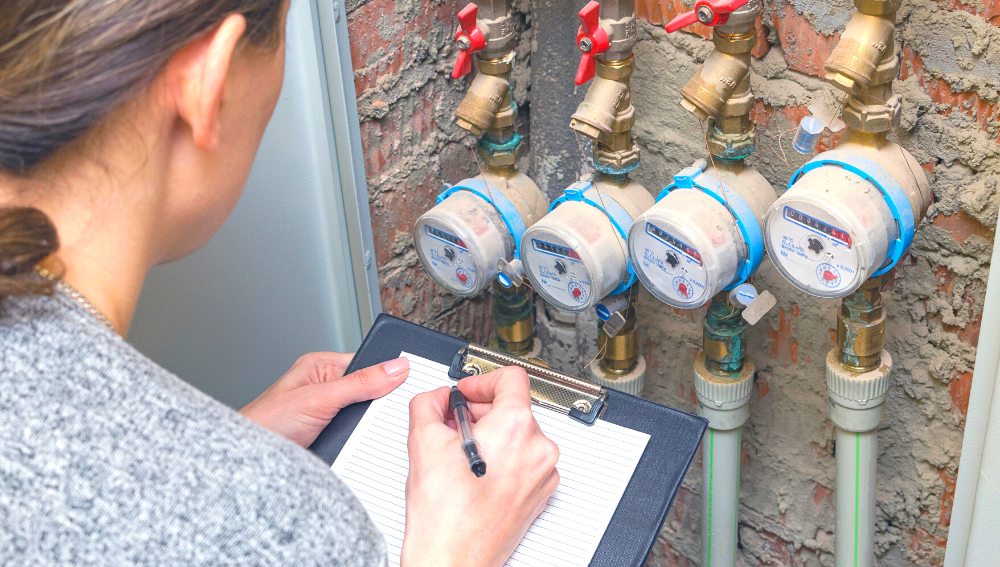A better way to manage and monitor water consumption
Installing individual water meters for sectional title complexes
South Africa celebrated National Water Week from 20 to 26 March. This event aims to raise awareness about water conservation by discouraging irresponsible water use.
Many sectional title complexes traditionally had bulk water meters. The local municipality supplies water to the scheme, which then shares this cost between the owners. This approach presents the following challenges:
1. Threatening the scheme’s financial health
Should the body corporate not collect sufficient funds from the owners or not be able to cover the full municipal bill they run the risk of their services being suspended. This means that they may need to use the reserve fund or even raise a special levy to avoid impacting the entire scheme.
2. Consumption
One municipal bill for the complex makes it challenging to track and manage water usage. It is difficult to determine when and where extreme consumption is happening, which also means that residents are less likely to notice leaks and dripping taps.
3. An unfair share
In order to cover the one municipal bill the community scheme needs to split this expense between all owners and typically without individual water meters this is done using their participation quota (PQ). As this amount has nothing to do with actual water usage it is not a fair policy. For example, if all the units in a complex are the same size they would each pay the same amount toward the bill but one unit could have a family of four living there while the other unit could be empty (and thus using no water) as the owner is away on a work assignment.
Separate water meters provide a better way to manage water consumption
Individual meters allow for accurate measurement of the water consumption of each unit, and more equitable billing. Owners are only charged for their actual water consumption. Unit owners who are aware of their consumption are more likely to try and conserve water which would result in a cost saving as well as a lower environmental impact.
Separate meters would make it easier to identify leaks and other water supply issues. If a particular unit consumes more water than usual, it may indicate a leak or similar problem.
What does the law say about installing water meters in sectional title schemes?
Separate water meters
Installation of separate water meters for individual units and exclusive use areas (EUAs), and to the common property only requires an ordinary resolution as per Prescribed Management Rule (“PMR”) 29(3) of the STSMA. Water costs of sections and EUAs would be based on the metered supply.
Pre-paid water meters
The installation of separate pre-paid meters is a little bit more complicated and time-consuming. PMR 29(4) stipulates the requirement of a special resolution. All owners and occupiers of units must be given at least 60 days’ notice of the proposed resolution. The notice also needs to be accompanied by details of all costs for the installation of the system, as well as the estimated effect on the cost of services over the next 3 years.
Additionally, PMR 29(5) requires that the installation of pre-paid meters may not infringe on the constitutional rights of section occupiers’ access to essential services and tenants’ rights in terms of the Rental Housing Act, or any other law.
Choosing between pre-paid and post-paid separate water meters
The choice between pre-paid and post-paid water meters for sectional title schemes will depend on the specific needs and circumstances of the scheme. Each option has its pros and cons.
Pre-paid meters
Pre-paid water meters require users to purchase water credits which are then loaded onto the meter. When the credits are depleted, the water supply is cut off until more credits are purchased. The vendors pay the money collected from the users (minus administration costs) to the body corporate, which then pays the bulk municipal water bill.
Schemes with a history of defaulting payers may benefit greatly from installing pre-paid meters, as it makes the management of municipal debts easier. Pre-paid meters are also a good option for sectional title schemes where there is a need to monitor and control water consumption.
However, the administration fees charged by third-party service providers are not regulated and can be costly. The vendor can also retain the funds for up to 90 days before paying it over to the body corporate, posing a risk to the body corporate’s cash flow. The approval process may also be more time-consuming and complex than installing regular individual meters.
Post-paid separate water meters
Post-paid water meters measure the water consumed by each unit and the readings from the water meters are used to calculate the monthly water bill for each unit. This can be a good option for schemes where individual default is less of a concern, and where a regular billing cycle is preferred. The approval process is also simpler than with pre-paid meters.
Despite the approval process being simpler, this option does not give bodies corporate the control over water use and timely payment that pre-paid metering does.
Conclusion
Whether the scheme decides on pre- or post-paid options, we recommend the installation of separate water meters for each unit. Not only does it promote more responsible water use, but is also the better choice for the financial health of the body corporate.
It is however important to consult with an experienced professional to determine the most appropriate option for a particular sectional title scheme.
Should your scheme not have the necessary reserve funds available for the installation of these separate water meters, or raising a special levy is not an option, the scheme can consider a bespoke project funding solution.





